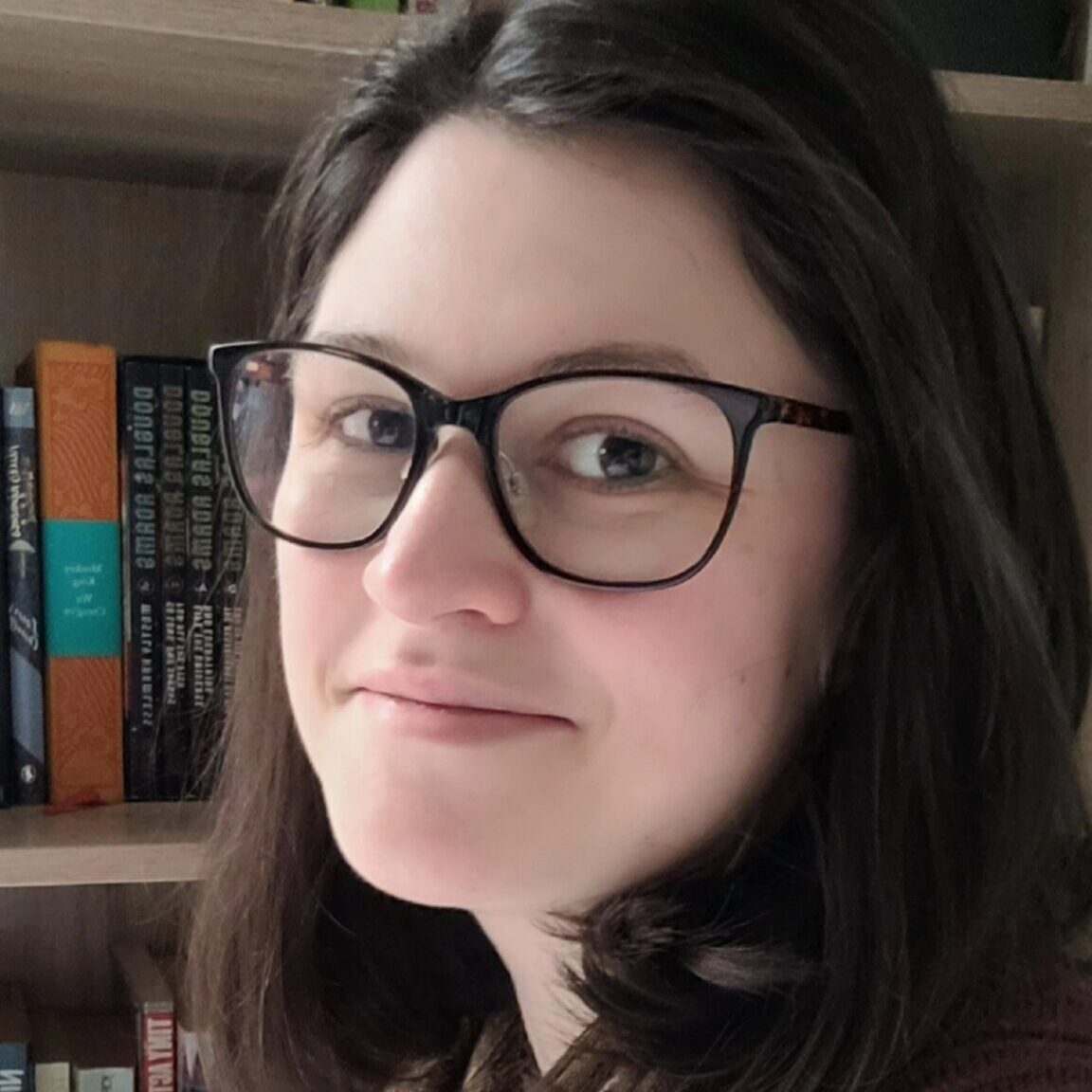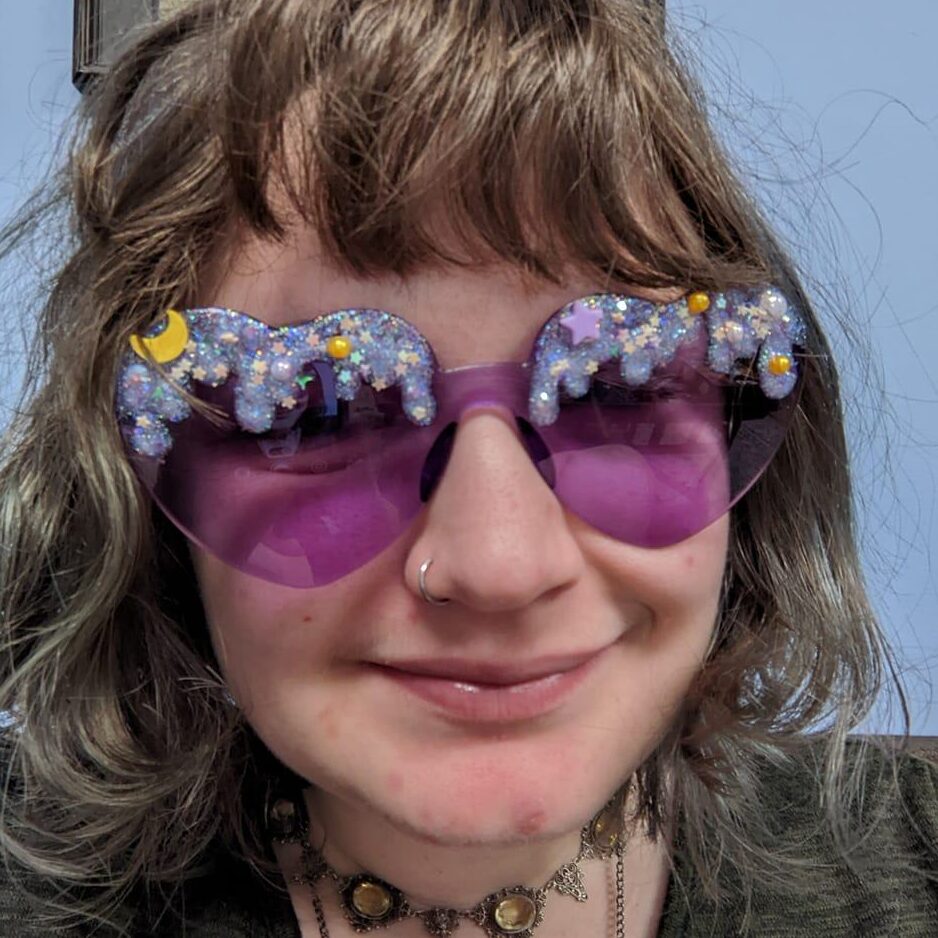In a sleepy town of witches and cryptids in the north of England, three teens find themselves wrapped up in dangerous strangeness when the magical disappearance of their teacher leads to a full town lockdown by the oppressive Centre for Occult Supervision.
In her forthcoming YA horror debut, Bleak Falls, author Shauna C. Highcroft writes about bodily autonomy and the horror that comes from having that stripped away, inspired by her own story and the current fight for abortion rights taking place around the world.
We spoke with Highcroft about setting, mental health, and coming of age stories. This interview has been edited and condensed for clarity.
First of all, “Bleak Falls” is YA horror. What inspired you to write in that genre? Could you tell us more about how your novel parallels the fears that are often felt by women?
It was inspired by watching the fight for abortion rights, plain and simple. It made me think that in 400 years, witch trials never truly ended. Women’s bodies are still being harmed and regulated for ideology imposed on us the large majority of times by cis men and it breaks my heart.
I didn’t know how to help. I had a toddler and, due to disability and long COVID, couldn’t attend marches myself or really do much proactive. I had a lot of trauma around abortion and autonomy and I needed to do something in my own way to manage the horrors and fears of watching our rights stripped away, so I did the only thing I’m good at!
To me, there are few things as horrifying as not being able to control what happens to your body. This also stems from feeling like I’m trapped inside a body that betrays me from time to time. Both of those fears were poured into the book. The two main women characters both suffer distinct hauntings, and both hauntings reflect that lack of control and autonomy over their own selves. In addition, and without too many spoilers, there are monsters and law enforcers who also reinforce that lack of bodily preservation and choice, not exclusively to the two young women. It does include the men as well, but not as acutely. It’s a sentiment carried through to the second book.
You mention that your PTSD is a theme in this story. If comfortable, could you tell us more about that connection and how it plays out in the book?
It is gruesome, and triggers to note are child loss and medical trauma.
I had a pregnancy in 2018 which ended in a missed miscarriage. The baby stopped growing but my body did not release it. I didn’t know the baby had passed until a scan showed no heartbeat. It was one of the worst moments of my life. I was told to wait for further scans and tests, and by the time surgery was no longer optional and was a necessity, it was believed the baby had been dead for around five weeks. Dead tissue like that can lead to sepsis and I was starting to become ill.
The surgery, while technically successful in the end, went severely wrong. I hemorrhaged blood and was passing in and out of consciousness from the pain. The procedure left me considerable internal scarring and I develped PTSD a couple of months later. I’m in a good place now. I’m able to talk about it and have my symtoms managed, but it took a long while to get there.
The procedure I had was an abortion, a D&C (dilation & curettage). I didn’t realize it until months later, but that was a standard abortion many people get.
Essential procedures like the one I had are being restricted in some instances as part of changing abortion laws and seeing that news triggered a lot of trauma for me. Hearing stories about women like me being denied medical treatment like mine due to doctors being afraid of being sued broke my heart. I needed an outlet. The pain memories can cause is a theme within the book, as is the damage of seeing things and experiencing horrors that your brain never lets go of.
What made you choose north England as your setting?
Bleak Falls, the fictional witch and cryptid town, was heavily inspired by York, a place I adore. I love how ancient and almost claustrophobic The Shambles in particular are, with leaning buildings, twisting alleys, and cracked cobbles. There’s something altogether paranormal about it. So the setting was mostly influenced by York, with a second large influence coming from Edinburgh, in particular Old Town, and with some vague New England aesthetics.
Beyond that though, I feel there’s a real lack of working-class cities represented in books, even more so when social class or social mobility isn’t a core issue. I come from generations of working class and have lived in those cities and seen the differences in culture compared to other places. The differences are subtle, but it’s things like having friends raised to eat their meat before anything else, as that was the most expensive part of the dish, to a dinner served with two different types of cooked potato as their parents and grandparents had experienced brutal rationing, or even sharing bathwater because it was too expensive to waste hot water.
Bleak Falls is an isolated small town and self-reliant, set in the 90s. It made sense to me that a town like that would have similar attitudes or approaches as the working class families around me as a child, so it felt fitting to set it in the north of England, a place that has historically been seen as working class. Plus, it’s an absolutely beautiful place! There’s something otherworldly about the countryside in those areas and they have so many gorgous and gothic towns.
Oppression and marginalized identities are a theme in your work. Could you tell us a little about the parallel between the oppressions in “Bleak Falls” and what people face in the real world?
Witches and cryptids are heavily regulated in the world within the book. There are entire law enforcement branches dedicated to policing those two groups. This came from thinking about if the witch trials never ceased, but that witches and monsters were real, how would that impact societies and laws from then until now? If there were people among us who could sing a song to lure men into the sea or become invisible in order to spy on people, society would be afraid of that power imbalance, and would seek to regulate people like this. Bigotry often comes from a place of misunderstanding, but also fear, so it was a very natural and early decision to make “occult” a slur in this world.
It’s hard to delve too far into the specifics without giving away spoilers for the book, but I used real-life experiences I have seen, experienced, or have heard stories from friends with lived experience as a foundation for the oppression and bigotry within the book. My day job is about working to make workplaces more inclusive and as a result, part of my job is to see and research inequality throughout the UK. All of this helped shape the world and the dynamics between the supernatural and everyone else. These themes are present very early in the book, when the law enforcers for the supernatural take over the town to conduct an investigation, and while many of them are taken to an extreme to highlight parallels in our own society, many are more subtle. Citizens are constantly harassed with microaggressions, but these themes only build and brew as the book continues.
Do you see yourself writing more stories like “Bleak Falls” in the future?
Absolutely. Since writing the first, I’ve written one other book, also a horror, which features a young teen being forced to manage his disability in an increasingly horrifying situation. I’m currently working on a horror fantasy blend with social issues as an undercurrent. Book two of Bleak Falls was significantly inspired by relatively recent protests in England and I don’t want to say too much on that yet as it’s a while away from publication, but diversity and social commentary are a non-negotiable part of my writing. Everything will have diversity or discuss a social issue within our society. I have a voice and hopefully a platform as an author. Even if it’s a small platform, to be able to represent my readers in as sensitive and just way that I can is imperative to me.
Is there anything else you would like to share?
Bleak Falls isn’t just a YA horror. It’s a genre blend of a paranormal horror mystery with romance and coming of age themes. Because I apparently wanted to make my job writing it as hard as humanly possible!
When I was plotting the book and building my ideas, I made the decision to keep it YA, although I’ll admit it is the higher end of YA and veering into NA. I did this because young women are not excluded from the conversation about rights, but I rarely see their voices represented. These decisions and changes in law directly harm them. They aren’t immune because of their age, but I haven’t seen an instance yet where they have been a main focus of this conversation. I’m sure they exist, but they’re not abundant enough.
The book was also meticulously considered in terms of the audience and how they’d connect. There will be people from marginalized groups who will understand on a deeper level the conversation of the book, and others who won’t, but will still enjoy it for what it is. It’s about including all groups, so everyone can see themselves represented and reflected, and that’s never more important than when you’re a teen understanding your place in the world as you shift towards adulthood. When people may feel like misfits or out of sorts with the world around them. There’s an enormous amount of self-identity and understanding that takes place in your teenage years, and I wanted to speak to that.
This book isn’t just about the horrors women of all ages face. The two main male characters also endure specific horrors and bigotry, albeit in a different capacity to the young women, but it’s still there, and it’s still all-encompassing enough for readers to engage with and see themselves in. It’s hard not to give more direct examples without spoiling huge chunks of the story, but my intention was to write a story that, while enjoyable, would resonate on a much deeper level with marginalized groups.
Beyond these depths, it’s still just a fun story. All readers will be able to enjoy the story for exactly what it is. They’ll still get the trills of a fun, spooky book with a lot of heart and a lot to say.


